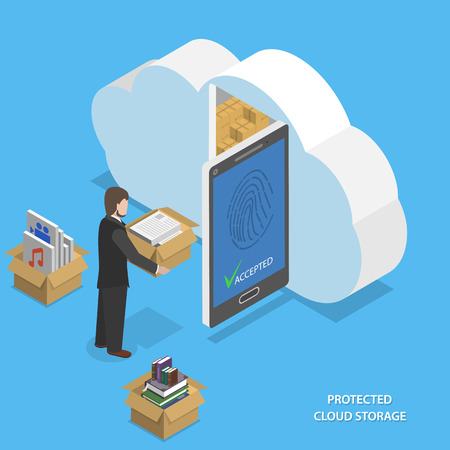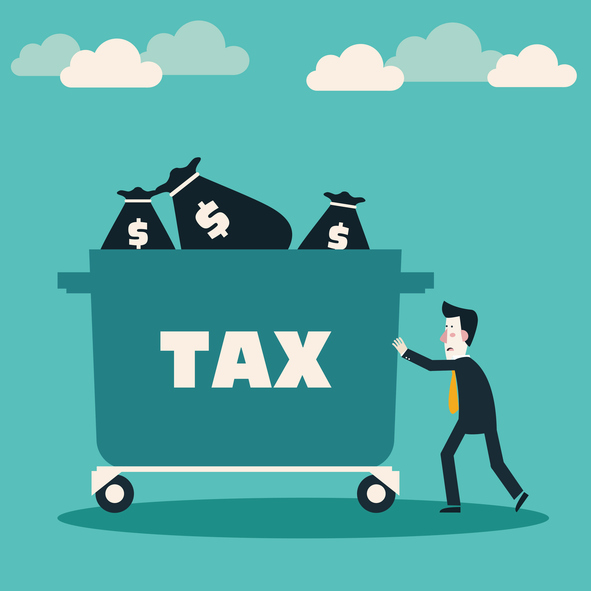Why so many SMEs are switching to Cloud Accounting

In this day and age, every business relies on some kind of technology to help with productivity. For example, we use a computer instead of a typewriter, we have a broadband connection as opposed to a dial-up. In this field of accounting, more and more SMEs are starting to move into cloud-based accounting systems like Xero. At TaxAgility, we have been using cloud accounting for some time now, and we would like to share the benefits of going to the cloud.
It may be beneficial to explain that cloud accounting refers to accounting software that is hosted on remote servers, and where you record transactions over the internet. This practice means you don’t have to install the software in your computer, or own a dedicated server.
Benefits of the cloud
Do work on the go
By using cloud accounting, you are no longer tied to the particular computer in your office that runs the accounting software. You can now easily access your accounts from anywhere - in a coffee shop, at home, in another country. As long as you have internet access you can access the cloud.
Moreover, cloud accounting software is device dependent. You can access your account from any device - desktop, laptop, tablet and smartphone. This means even if you just take your smartphone on a holiday, you can still be on top of things in the event when an urgent accounting request happens.
Account information is kept safe
The cloud always backs up the work you’ve done, keeping it safe from loss. If there’s a problem or data was accidentally deleted, you don’t have to fret as it can be easily recovered. In business, time is money, keeping your data safe means you don’t need to waste time trying to recover any lost data.
Best of all, the cloud protects your data from cyber attacks or break-ins. This means you don’t have to worry about your accounting data being stolen. Think about the negative effects if your business’ financial information were stolen - the risks of someone stealing from you or using the data against you - each risk has plenty of undesirable and daunting consequences. Cloud accounting can significantly lower your risk and exposure.
Colleagues can collaborate on it
Do you have an accountant that manages the bookkeeping and finances for your business? Sometimes that can feel like you’ve got a bit less control over the business. By using cloud accounting, you can always keep a watchful eye look alongside your accountant.
For larger organisations with satellite offices in other countries, cloud accounting means colleagues from across the globe can access the data in real time. There isn’t a need to print out and send the spreadsheet via another method to colleagues in another country. Cloud accounting saves time and effort.
At TaxAgility, we are a team of Accountants, highly experienced and knowledgeable in all accounting needs. If you have yet used cloud accounting, perhaps it is time to start now. We can help to advice and guide you along the way.
Are You Aware of the New IR35 Update?
 IR35: the change is coming
IR35: the change is coming
A week ago, a firm which has active contracts with the Ministry of Defence became the first private company to ban workers who are limited companies. It simply told its hundreds of “Ltd” workers it has on-site that they must switch to an umbrella company or quit.
Traditionally, a contractor, or a self-employed person, usually chooses to set up a Limited Company or work through an Umbrella Company (you can click here to read a page which we have put up summarising the pros and cons of limited vs umbrella company). Most contractors choose to set-up a limited company because this is widely considered to be the most tax efficient method to maximise your take-home pay. Why? Because a limited company allows contractors to claim various expenses and paying lower taxes by taking a dividend instead of a full salary.
So the government is bringing in a new legislation which will ensure that contractors who are doing the same job as an employed worker are not getting a higher take-home pay simply because they work through a limited company. In addition to that, the government is also making changes to umbrella companies - one such change is contractors working through an umbrella company cannot claim travel and subsistence expenses. The bottom line is: the new IR35 legislation will ensure that people who benefit from tax savings are honest contractors, while moving those who should be ‘employed’ back to paying the correct PAYE payments.
Public Sector
It’s important to point out that this legislation will only affect public sector clients and placements. Private sectors are not affected (yet).
From 6 April onwards, every public sector department is required to go over their need for contractors - reviewing the contracting roles and seeing if the roles could be replaced with standard employees. Public sector departments also need to review their off-payroll contractors making sure they work through an umbrella company or on PAYE.
Another point to note is: IR35 status for Public Sector Contracting will be determined by the client, not the contractor.
As a result of these changes, we anticipate that most public sector contractors are likely to go on an agency’s PAYE scheme instead of going to an umbrella company, as there is not much difference between the take home pay through the agency’s PAYE vs an umbrella company.
Still confused? You’re not alone, because tax is a complex subject. The good news is, our team of London Accountants at TaxAgility is here to help. We will first seek to understand your situation, then see how the new legislation will affect you. This is why we always offer the first consultation free of charge. Call us today at 020 8780 2349 or complete the enquiry form and we will call you back.
Are You Aware of These Tax Changes? Part II

Last week we highlighted an upcoming change on Supplier Payments and how companies will be required to publish their payment policy and practice. This week, we will continue with this theme and look into two upcoming changes: Salary Sacrifice and New Vehicle Tax Rates.
Salary Sacrifice
Salary Sacrifice is an arrangement between an employer and an employee which reduces the employee’s entitlement to cash pay, but the sacrifice of cash entitlement is in return made in some form of non-cash benefit.
The most popular benefit claimed by staff through such arrangements are pension contributions. Over the years, benefits like childcare voucher, bicycle schemes, gym membership and mobile phones have become common. In recent years, even white goods (such as tablets and TVs) are claimed through such arrangements. What it means in practice is: employees save on tax by paying for these benefits before tax is taken, while employers save on paying National Insurance on the sacrificed wages.
On the surface, salary sacrifice arrangements are beneficial. But as companies begin to pay benefits using such arrangements to avoid national insurance payments, the government will close the loophole and gain more taxes.
From April 2017 onwards, benefits such as mobile phones, gym memberships and white goods will no longer be eligible under such arrangements. However, childcare voucher and bicycle schemes will remain.
New Vehicle Tax Rates
On the government’s website, this sounds rather straight forward – on or after 1 April, what you pay for the first 12 months is based on CO2 emissions. Then after the first year, the amount of tax you pay depends on the type of vehicle. However, if you consider the amount of tax you pay currently (prior to 1 April) and compare it to buying the same car on or after 1 April, you may be surprised to learn that it is beneficial to wait. A couple weeks ago, the consumer team at Auto Express compared the tax rates for eight different types of car, from superminis to SUVs. What they found was, buyers of smaller, more economical cars will face the biggest tax hike after 1 April, compare to what they are paying now. The result caught many by surprise. If you are considering buying a new car, check out their site to find out more.
Tax is a complex subject. Often there isn’t a straight answer, this is where we can assist you. We are chartered tax accountants focusing on businesses across London. We are here to explain and guide you through the tax system. Call us at 020 8780 2349 today. We offer the first consultation for free so you and I can discuss your situation at ease.
Are You Aware of This Tax Update?
 The UK tax system is very complex, often new regulations come into effect but most businesses aren’t aware of them. This is an area which we can definitely assist our clients – explaining and guiding them through the complex and ever-changing tax system. Today, we will talk about Supplier Payments which may affect you.
The UK tax system is very complex, often new regulations come into effect but most businesses aren’t aware of them. This is an area which we can definitely assist our clients – explaining and guiding them through the complex and ever-changing tax system. Today, we will talk about Supplier Payments which may affect you.
The news headlines “Tesco knowingly delayed payments to suppliers” were prominent last year. The good news is, techniques used by major buyers in large corporations and other significant entities to squeeze the maximum amount from relationships with suppliers are soon to be held up to wider scrutiny. A new 'Duty to report on Performance and Payment Practices', becoming law in April 2017, will require larger organisations to report on their payment practices every six months.
Companies who fall within the Companies Act 2006 definition of Medium companies for financial reporting purposes and LLPs (Limited Liability Partnerships) as defined by the 2000 Act of a similar scale, will be impacted by the new guidance issued in January.
Overall, this update is welcomed by smaller suppliers; though some major companies say this will add an unnecessary burden to their existing payment process.
For the interest of our readers, here are a few particulars that should be noted regarding the new requirements:
- All results reported will be available for the public to view online.
- The figures reported will be backward looking, referring to the previous year's financial results. Also, reporting will need to be signed off and certified by a company director every six months (designated member for LLP's).
- Information is required to be made available within 30 days of the end of a reporting period.
- Metrics to be reported on include the average payment days to suppliers, and amounts due to suppliers of 30-60 days and in excess of 60 days at the date of reporting.
- Organisations with a Group structure will have to report metrics at an individual company level, but overseas registered companies owned by the company or Group are not required to be reported on.
- Breeches of reporting requirements will be considered a criminal offence.
- Certain other narrative regarding the company’s payment policy will need to be reported. This includes the company's policy with regard to supplier disputes, and the company's maximum payment terms under their contractual terms with suppliers.
These new requirements will impact certain companies more than others. Apart from big supermarkets which we hear about in the news, the building sector can also be notorious for deducting retention deposits from work completed, and these amounts are often not released by the buyer until months after work has been complete. So our word of advice to our clients is always, ‘be clear about the payment arrangements’.
If you would like some advice on the UK tax system or on this particular issue, contact our Tax Advice service today. You can call us at 020 8780 2349 or complete the enquiry form and we will call you right back.
